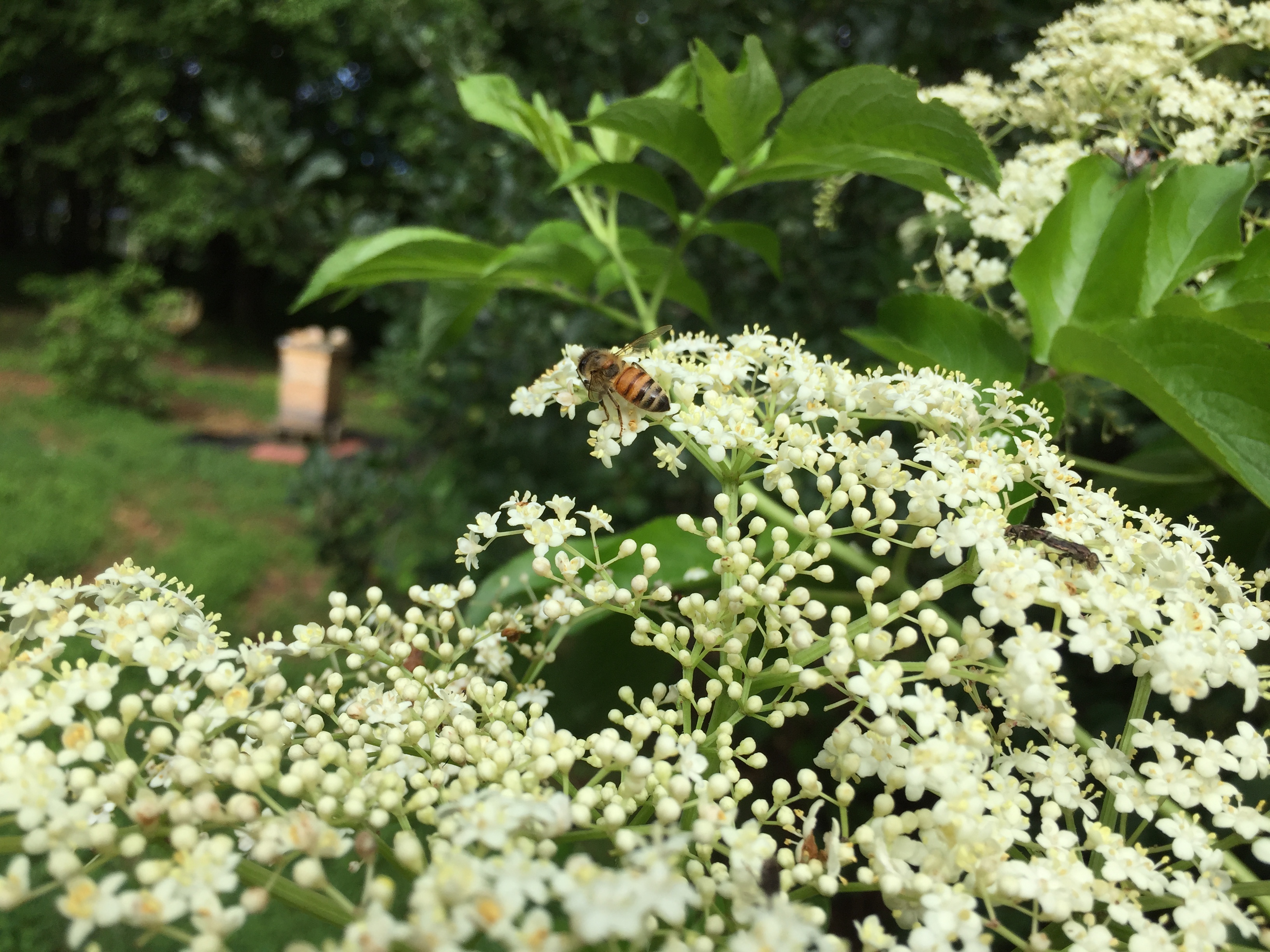- Name
- Elderberry
- Common Names
- Common Elderberry, American Elderberry (Sambucus canadensis); European Elderberry, Black elderberry (Sambucus nigra)
- Scientific Name
- Sambucus spp
- Family
- Adoxaceae (formerly classified in Family Viburnaceae)
- Description
- American Elderberry is a native thicket-forming shrub, 4-12 feet tall, that can be found in all areas of NC along streams, marshes, moist forests and disturbed areas. It is somewhat woody and has an arching spreading form. Clusters of round, edible, purplish-black drupes are eaten by many mammals and songbirds. Cooked fruit can be used in jams/jellies and pies.
- Leaves
- Compound leaves are set oppositely in pairs in a feather-like arrangement. The leaf surface is bright green. The oval to lance-shaped leaflets are up to 6" long and 2 1/2" wide, with finely serrated margins.
- Flowers
- Small white flowers are borne in dense umbrella-like clusters (umbels) measuring 4"-10" across.
- Bloom Time
- April to July
- Pollen Source
- fair
- Nectar Source
- poor
- Pollen Color
- canary yellow
- Native to NC
- No

